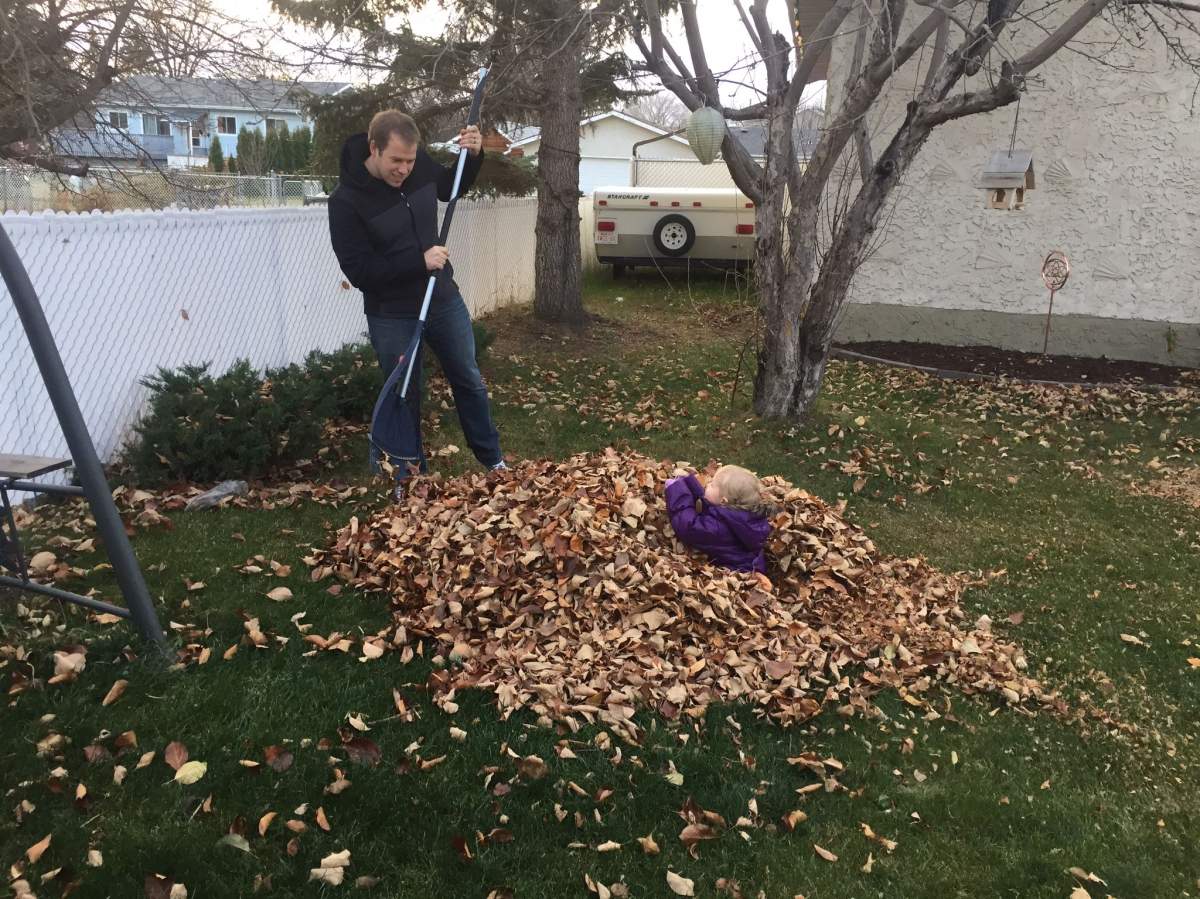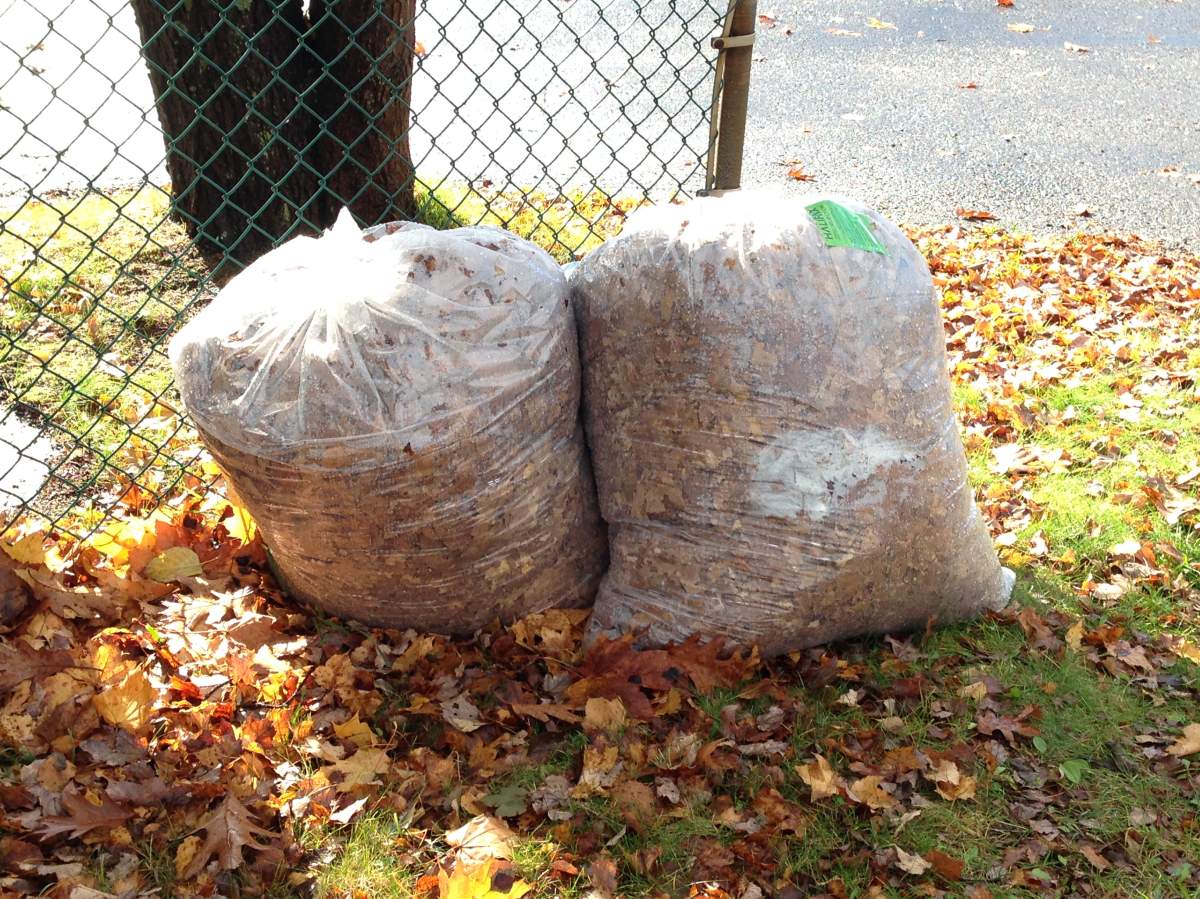Leaves changing colour in the fall is a beautiful sign of transitioning seasons, but as they fall and gather on our lawns raking them up can be a daunting task for home owners.

Lucky for those hoping to avoid tedious yard work, experts suggest leaving the rake in the shed and leaves on the ground.
Healthy soil
Leaving fallen leaves in your yard is more environmentally friendly and can support backyard biodiversity in many ways.
“Green leaves are crucial for soil building and letting them fall to the ground and leaving them is great,” said Calgary horticulturist Kath Smyth.
“The more we can give back to the soil the more it can give back to us.”
A light layer of leaves can improve the health of your lawns and gardens by providing a green, organic mulch which can help enrich the soil.
Smyth does caution that thick piles or layers of leaves can affect the growth of grass and other plants.
“Say you have about three inches of leaves, it will suffocate the lawn and in the springtime there will be the issue of the grass not being able to green up properly”

Get breaking National news
WATCH BELOW: As seasons shift from summer to fall, horticulturist Kath Smyth joins Global Calgary to share her tips for cleaning up your garden and preparing it for the next growing year.

Habitats and hibernation
Leaves on the ground can offer wildlife and insects a sheltered place to live and in the colder months, hibernate.
Dan Kraus, a conservation biologist with the Nature Conservancy of Canada, said people should leave plant stalks and dead branches when they can.
“By cleaning up our yards and gardens entirely, we may be removing important wintering habitats for native wildlife in our communities.”
Backyard animals, such as toads, frogs and many pollinators, have adapted to hibernate under leaves.
“The leaves provide an insulating blanket that can help protect these animals from very cold temperatures and temperature fluctuations during the winter,” said Kraus.
Carbon Sink
When leaves break down, they store some of their carbon in the soil, allowing your backyard to become a carbon sink and absorb carbon dioxide from the atmosphere.
“While it’s great for cities to provide collection programs to compost leaves, the most energy-efficient solution is to allow nature to do its thing and for the leaves to naturally break down in your yard,” said Kraus.
Leaf clean-up
If you are cleaning up your yard, The City of Calgary is reminding everyone to not put yard waste into plastic bags and instead put it directly into the green carts.
If you have extra yard waste and branches, the city recommends the following:
- Tie extra branches into bundles with natural fibre string
- Make sure branches are less than six inches in diameter and four feet in length
- Place extra paper yard waste bags and bundled branches at least one foot to the side of your green cart
For more yard waste tips, visit Using Your Green Cart on The City of Calgary website.





Comments